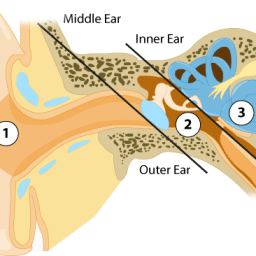What is the Link Between Hearing Loss and Iron Deficiency?

Hearing loss is a common condition that millions of Americans deal with every year. Many different factors can both cause hearing loss and increase your risk of developing it. Some research has indicated that having an iron deficiency may worsen your hearing health. Types of Hearing Loss Though you might assume all hearing loss is…
How to Deal with Fear Over Hearing Loss

If you’ve noticed that you have signs of hearing loss, you aren’t alone. According to the National Institute on Deafness and Other Communication Disorders (NICDC), nearly 15% of American adults aged 18 and over report some trouble hearing. While hearing loss is common, it can still bring up many fears in people experiencing the condition….
Facing Your Fears of Hearing Loss

More than 1.5 billion people (nearly 20% of the global population) live with hearing loss every day. Although it is widespread, a lot of people may choose to avoid confronting the reality of hearing loss rather than seeking treatment. Treating your hearing loss with hearing aids can help ease communication, improve awareness of your surroundings…
Tips for Protecting Your Hearing at Sporting Events

Whether you love cheering on the Dodgers or can’t wait for football season to start so that you can catch the Rams playing at SoFi Stadium, there’s nothing quite like rooting on your favorite team live and in person. While sporting events can be exhilarating, all the crowd noise, music and other sounds in the…
Tips for Building the Best Relationship With Your Audiologist

A study on trends in hearing aid ownership found that “The overall proportion of participants 70 years and older who own and use hearing aids rose from 15.0% in 2011 to 16.9% in 2015 and 18.5% in 2018.” If you’ve decided to start using hearing aids, it’s essential that you begin establishing a strong relationship…
What Are Common Causes of Pediatric Hearing Loss?

The Centers for Disease Control and Prevention (CDC) reports, “CDC data have shown that approximately 1 to 3 per 1,000 children have hearing loss. Other studies have shown rates from 2 to 5 per 1,000 children.” Although pediatric hearing loss is relatively common, the causes aren’t necessarily well-known. In this post, we review some of…
How to Plan a Hearing Loss-Friendly Wedding

Did you know that, according to the National Institute on Deafness and Other Communication Disorders, “One in eight people in the United States (13 percent, or 30 million) aged 12 years or older has hearing loss in both ears, based on standard hearing examinations.” If you’re planning a wedding, this is an especially important fact…
Metabolic Syndrome Can Increase the Risk of Hearing Loss

A 2021 study has uncovered a link between two conditions: metabolic syndrome and sudden sensorineural hearing loss (SSNHL). Below we review what metabolic syndrome is, what SSNHL is and what the study shows. What Is Metabolic Syndrome? Metabolic syndrome is a cluster of risk factors related to cardiovascular disease, including diabetes, heart disease and stroke….
Spinal Cord Injuries Can Lead to Hearing Loss

The spinal cord, located in the canal in the center of your vertebrae, is a bundle of nerves that sends messages between the brain and the rest of your body about sensation and movement. Did you know that if you injure your spinal cord, it can actually lead to hearing loss? We review more about…
How the Ear Works

The ear is a surprisingly complex organ responsible for collecting and processing sounds and transmitting them to the brain for interpretation. Many take hearing for granted, but understanding the process is the key to treating hearing loss. How Is the Ear Structured? The ear consists of three sections: the outer ear, middle ear and inner…